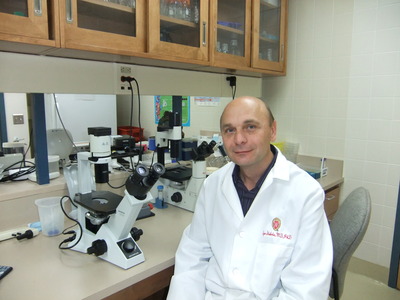A new listing for Cynata Therapeutics
Identifying Cynata Therapeutics (ASX:CYP) as a new opportunity a few years ago has paid off for EcoQuest, which recently acquired the Californian-based stem cell company.
The CEO of Cynata Therapeutics, Dr Ross Macdonald, said Cynata had been backdoored into EcoQuest’s shell and would list on the ASX.
The process began with an initial injection of $250,000 into Cynata about a year ago, which led to EcoQuest recently acquiring the entire company.
“We then conducted a capital-raising of $5 million and changed the EcoQuest name to Cynata Therapeutics,” MacDonald explained. “We recomplied with ASX listing rules because the business purpose had changed and to give shareholders notification. It’s more a resumption of trading on the stock exchange.”
MacDonald said he had been receiving an enormous amount of interest in the company and was keen to keep an eye on the ASX with shares back on trading.
Cynata Therapeutics originated in 2011 when Melbourne-based entrepreneur Ian Dixon, inspired by the research and technology coming out of Professor Igor Slukvin’s lab at the University of Wisconsin, ventured to the US to find out more.

Dixon liked what he found and the company was established in California to progress the therapeutic stem cell platform technology, Cymerus, developed by Professor Sukvin.
The technology uses a particular type of precursor cell, mesenchymoangioblast (MCA) cells, to mass produce mesenchymal stem cells (MSCs). Professor Slukvin discovered and patented MCA cells.
MSCs are found in the bone marrow and connective tissue of the body and have immunosuppressive and immunoregulatory activity. They are a unique in that they are a universal donor cell because they are not being recognised by the immune system - this means they have no issues about being rejected.
MSCs have the potential to remedy a broad range of diseases including cardiovascular disease, diabetes, diseases of the blood, lung, kidney and immune system disorders.
The $5 million capital raising will see the company through two years of preclinical activities continuing at Professor Sukvin’s lab. MacDonald anticipates the trials will move into humans by 2014-2015.
“The exciting thing is, and Mesoblast has led the way on this, a lot of companies are now publishing data on phase 2 clinical trials, so it’s not just a curiosity,” he said. “We are at the forefront of future medical treatment for a large variety of diseases.”
Babies of stressed mothers likely to get their teeth earlier
Maternal stress during pregnancy can speed up the timing of teeth eruption, which may be an early...
Customised immune cells used to fight brain cancer
Researchers have developed CAR-T cells — ie, genetically modified immune cells manufactured...
Elevated blood protein levels predict mortality
Proteins that play key roles in the development of diseases such as cancer and inflammation may...





